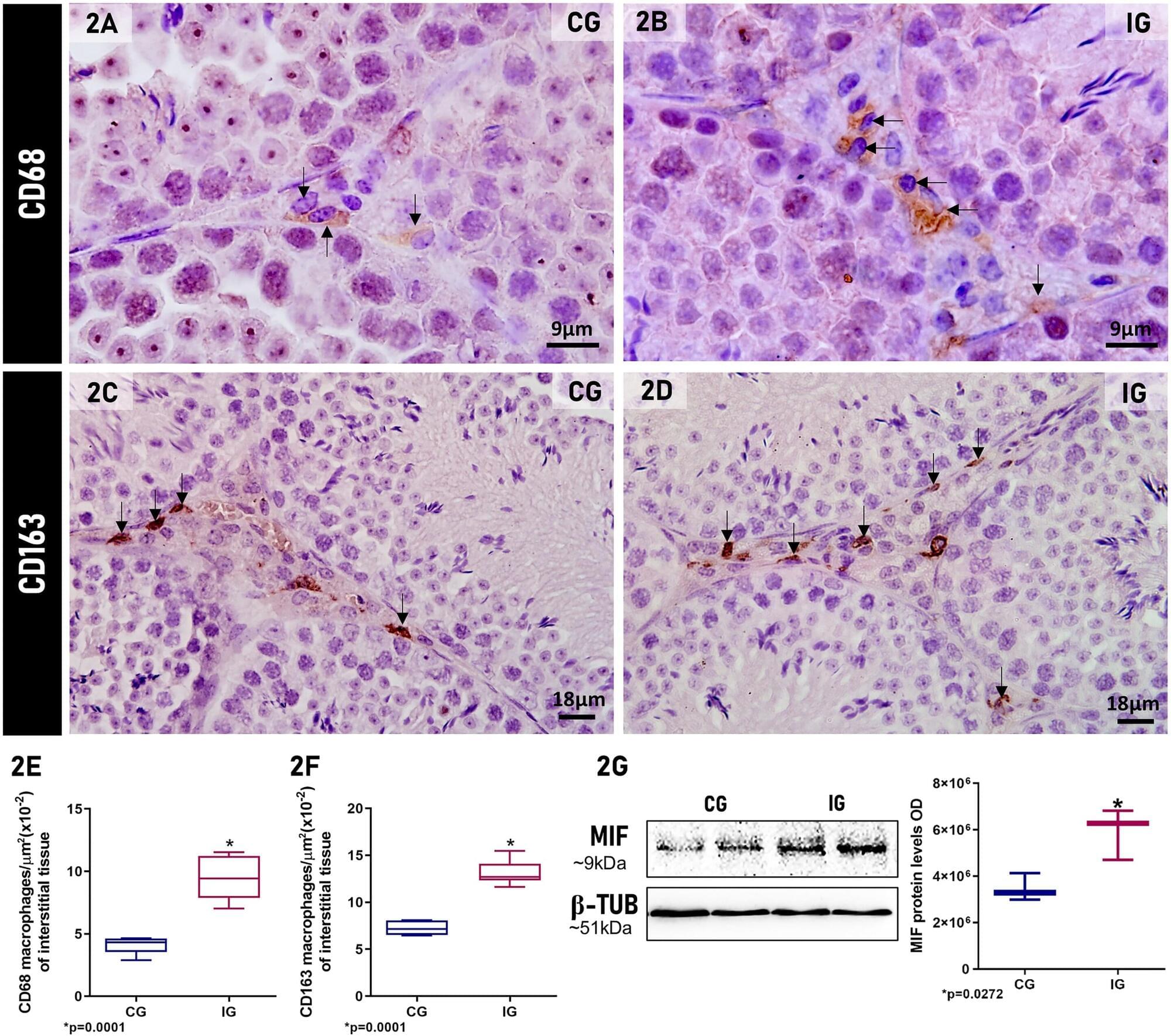The COVID-19 virus hijacks the machinery of testicular cells that produce the hormone testosterone in order to replicate. It also appropriates the metabolic pathways of these cells and cholesterol, a precursor of testosterone, thereby altering lipid metabolism for its formation.
This has been verified in a study conducted in Brazil by researchers from the Araraquara School of Dentistry at São Paulo State University (FOAr-UNESP), in partnership with the Ribeirão Preto School of Medicine at the University of São Paulo (FMRP-USP), in the testicles of transgenic mice. The research is published in the journal Frontiers in Cellular and Infection Microbiology.
The study revealed the presence of SARS-CoV-2 particles in lipid inclusions and organelles responsible for testosterone production in Leydig cells for the first time. In addition, the researchers described the mechanism by which the virus interferes with the functioning of these testicular cells. The discovery helps explain why male patients with severe COVID-19 have lower levels of testosterone, and possibly cholesterol.
